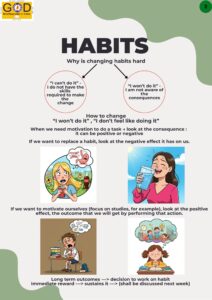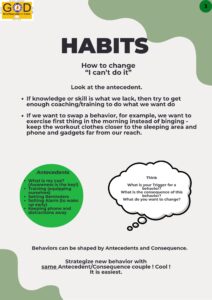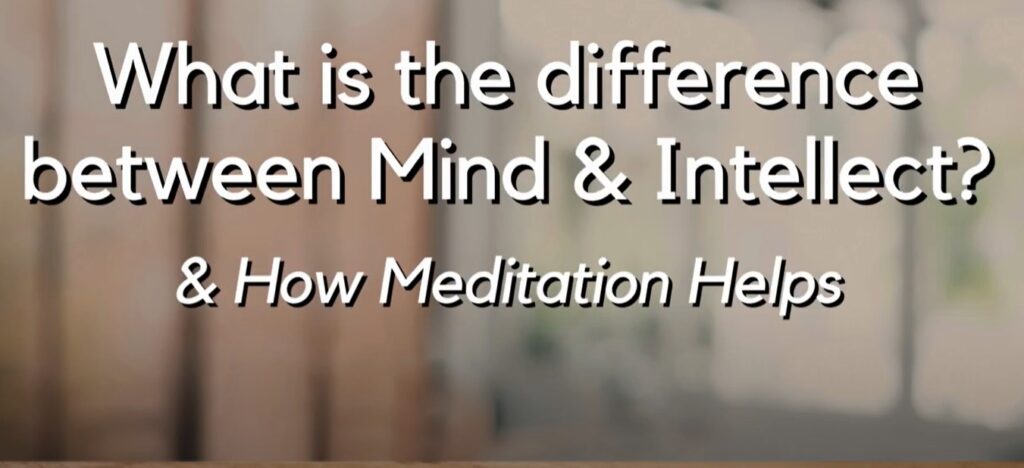The patterns of our daily lives are often shaped by routines we may not even realize we’re following, but behind every routine — or habit — there is a process. Our thoughts lead to our actions, which lead to our habits, which then lead to our character, which leads to our destiny. In simpler words, the quality of our thoughts decide our destiny. Habits are our repeated actions created by our thoughts, and lead to our consequences.
This concept can be looked at using the ABC model. The first part of this model is the A, which stands for antecedent. The antecedent is the trigger, or the cue, from our brain that leads us to act a specific behavior, which is what the B stands for. The behavior is the action that is taken after the trigger hits the brain. Our brain has a specific action stored for each cue based on our past repeated instances, making an automated routine based on these. The action that is taken leads to the consequence (C), which is the end reward (can be positive or negative) from our action. An example of this would be when one feels thirsty, they then go to their kitchen and grab a soda. Here, the antecedent would be the trigger of feeling thirsty, leading to the action of going to the kitchen and grabbing a high-sugar soda to drink, with the consequence or reward of this being our thirst being quenched but also our health being affected.
 Looking at the negative consequence in the aforementioned example above, it leads to asking the questions: How do we change a habit? And why is changing it so hard?
Looking at the negative consequence in the aforementioned example above, it leads to asking the questions: How do we change a habit? And why is changing it so hard?
In order to change a habit, we need to figure out what triggers the behavior and what is the consequence of the behavior. When attempting to change a habit, we usually cross one of two scenarios, either “I won’t do it” or “I can’t do it”. The “I won’t do it” scenario comes from a lack of awareness on the negative consequences of a behavior. In order to get the motivation to change, we need to realize the negative consequences. Following the previous soda example, we need to be aware of the negative impact it can have on one’s health, and replace this with the action of having a drink that is simply more healthy such as water, meaning our thirst is quenched in much healthier fashion.
 The “I can’t do it” scenario generally comes from a case of not having the capable skills needed to change the habit. In order to deal with this, we focus on the antecedent and train ourselves into doing what we want to do. We need to focus on changing what our brain cues us to do. For example, let’s look at one who wants to go for a jog outside in the morning immediately after waking up, but is struggling to stop spending extensive time scrolling through their phone when they first wake up. The best way to deal with this would be to keep the phone in a farther reach away from the bed, while maybe having a pair of socks ready next to the bed, in order to trigger the self to get ready for a jog after waking up.
The “I can’t do it” scenario generally comes from a case of not having the capable skills needed to change the habit. In order to deal with this, we focus on the antecedent and train ourselves into doing what we want to do. We need to focus on changing what our brain cues us to do. For example, let’s look at one who wants to go for a jog outside in the morning immediately after waking up, but is struggling to stop spending extensive time scrolling through their phone when they first wake up. The best way to deal with this would be to keep the phone in a farther reach away from the bed, while maybe having a pair of socks ready next to the bed, in order to trigger the self to get ready for a jog after waking up.
Our struggle to change or remove a habit also often comes from the fact we keep “craving” for the reward. After tasting a specific reward once, we start anticipating and craving for it even before it comes. The craving is almost like a battery to our habits, keeping them going. Our “pragna”, which is our level of awareness, is being tested. We need to be aware of the impact that the reward that we crave for has on us, and use this to change our behavior. It is also very important that we have belief that changing will actually benefit us, for it to happen.
By Sibi Ravi, Nashua, NH
Excerpt from Sri Ramanujamji’s Intelligent Living Yuva Sessions







